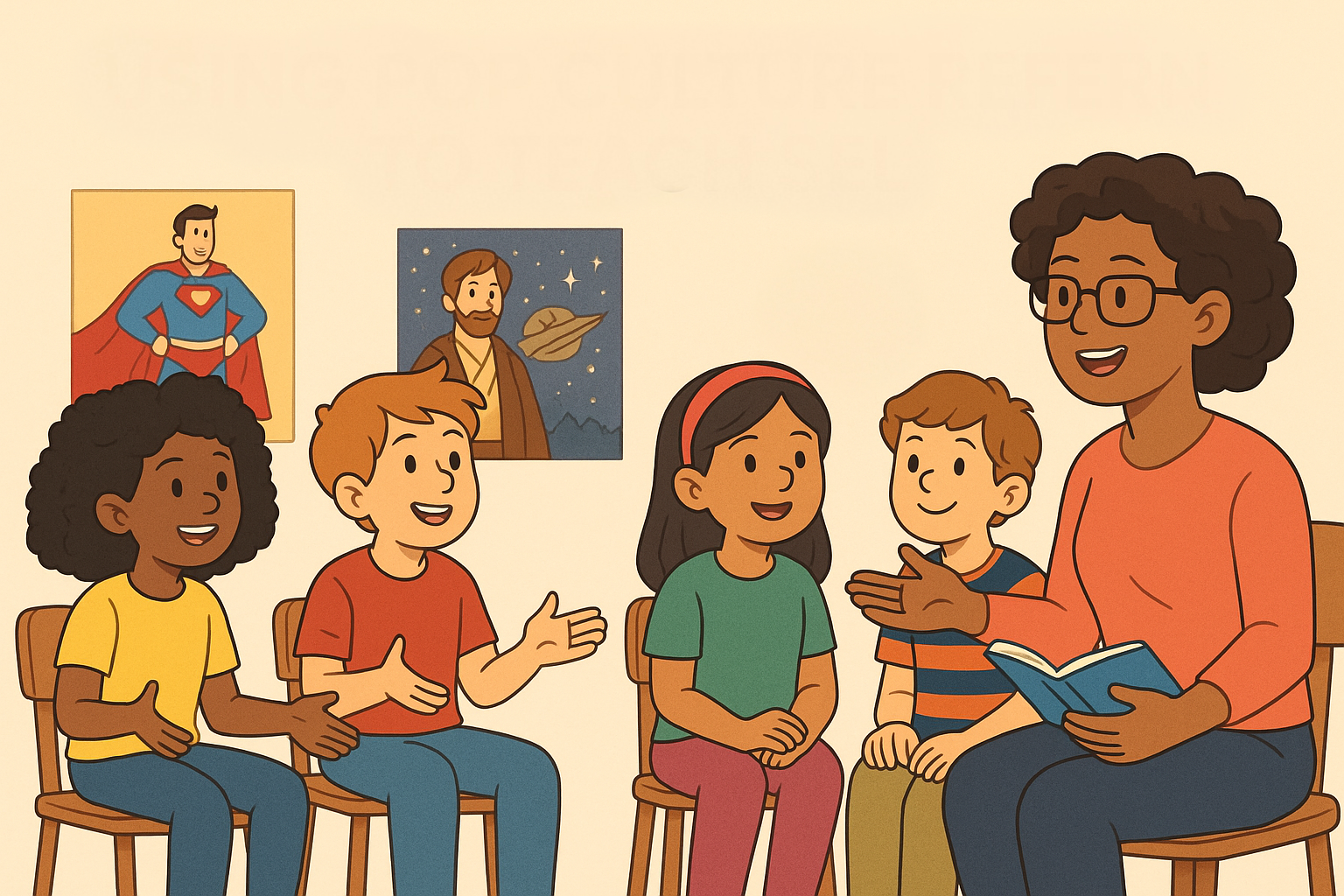SEL Tip: Utilizing Pop Culture to Teach SEL

SEL Tip: Utilizing Pop Culture to Teach SEL
Pop culture can be a powerful way to connect with students and help them develop important social-emotional learning (SEL) skills. Characters like superheroes and space explorers often face challenges that mirror what kids experience every day—frustration, failure, teamwork, and perseverance. This May, in honor of May the 4th Be With You, celebrate the power of pop culture by helping students explore SEL through the lens of superhero stories. Here’s how to bring this theme to life in your classroom with a read-aloud that kids love.
Facilitate a Read Aloud: Even Superheroes Have Bad Days
Even Superheroes Have Bad Days by Shelly Becker is an action-packed, rhyming story that shows young readers how even the strongest and most capable characters have difficult emotions. Instead of letting their feelings turn into destructive behavior, these superheroes model healthy ways to cope—whether it’s talking to someone, exercising, or taking a deep breath.
How to Use It:
-
Read-Aloud Setup: Read the book aloud to the class, using dramatic voices and energy to bring the superheroes to life. Pause when a superhero is faced with a “bad day” moment and ask: “What emotion do you think they’re feeling right now?” or “What would you do if you felt like that?”
-
Discussion: After the story, ask students: “What were some ways the superheroes handled their big feelings?” and “Have you ever had a day like that?” Encourage them to make connections between the superheroes’ choices and their own strategies for staying calm and in control.
-
Connection to SEL Goals: Highlight themes of emotional regulation, self-awareness, and positive coping strategies. Reinforce the idea that having big feelings is normal—but we always have a choice in how we respond.
Set Personalized SEL Goals
After the read-aloud, support students in setting their own “Super SEL Goals.” These might include:
-
Managing Anger: “When I feel angry, I’ll take three deep breaths instead of yelling.”
-
Problem-Solving: “When I feel stuck, I’ll ask for help instead of giving up.”
-
Empathy: “I’ll check in with a friend who looks sad.”
Encourage students to imagine their own inner superhero who helps them make good choices—even on tough days.
Track Progress with Reflection
Keep students engaged by revisiting their SEL goals throughout the month. You can use superhero-themed journals, check-in circles, or a “Super SEL Wall” where students post examples of when they made a great choice. Try asking reflection questions like:
-
“What was your superhero moment this week?”
-
“What did you do when you had a ‘bad day’ feeling?”
This builds self-awareness and celebrates growth in a fun, accessible way.
Promoting Accountability and Growth
Using superhero stories to teach SEL is more than just fun—it’s a way to help students see themselves as powerful, capable problem-solvers. When you connect SEL goals with pop culture, you meet students where they are, and you help them grow in ways that feel exciting, empowering, and relevant to their lives.
In Conclusion
Even Superheroes Have Bad Days gives students the message that strength doesn’t mean never feeling upset—it means knowing how to manage emotions and respond in positive ways. This May the 4th, invite your students to discover their own inner superheroes and take brave steps toward becoming kind, self-aware, and emotionally strong individuals. The force of SEL—and pop culture—can truly be with them.
If you found this content helpful, you might enjoy this Imagineerz blog post and check out Reel Character: Using Film to Enhance Social and Emotional Learning!


